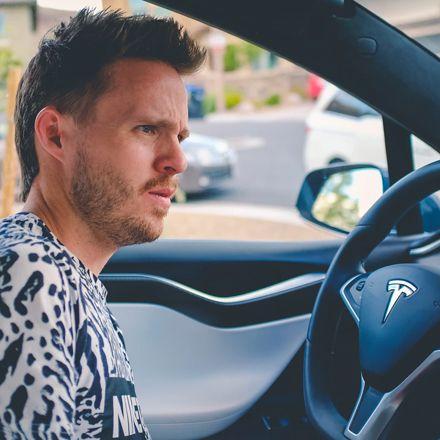Why the industry of Self-Driving Cars should change their focus
Self-driving cars (SDC) are perhaps the most exciting and fastest emerging technology of today. All of the industry’s biggest players want to be part of this phenomenon, many of whom have already announced how their new smart machines will become an everyday reality over the next few years.
Written by Luis Paradela|Posted on June 29, 2017

Self-driving cars (SDC) are perhaps the most exciting and fastest emerging technology of today. All of the industry’s biggest players want to be part of this phenomenon, many of whom have already announced how their new smart machines will become an everyday reality over the next few years.
However, the massive amount of time and cost required to make these cars commonplace in our current infrastructure is astronomical and impractical. Kind of like trying to build a way for airplanes to travel by land. What we need is for the industry to shift their focus to creating a new dedicated transportation infrastructure for SDC.
The challenges of making self-driving technology commonplace
According to the current technology, there are two main basic ways to make the four wheels of a car safely drive autonomous:
Robotics: Traditional schema for sensor and feedback control. Reliable, but with a limited capacity to handle all the possible situations and environments that a car may encounter in the real world. Deep Learning: Mainly behavioral cloning and image classification to make the car more “human” and, in my humble opinion, this technology is making the difference and bringing self-driving cars to reality. I am personally specializing in deep learning in my first term of the Udacity nd013 Nanodegree, which provides an amazing toolset and insights to get started in this industry.
However, there are several challenges to the SDC technology, which provide barriers to enabling our global societies to adapt to this technology.
Hardware costs: A car is not cheap, and adding a battery of sensors and powerful specialized computers doesn’t help to make cars cheaper. Generalization: There are many variables for driving which required different skills. Driving in daylight, at night, with heavy rain, highways, side streets, or in a city full of traffic, bikes, and people walking. In fact, there are possibly too many variables and conditions which require self-driving systems to be smarter than perhaps current state of the art technology is capable of.
Build the road for the car, not the car for the road
There is an incredible effort underway to create SDC systems, and it is one of the main factors that attracted me to this new exciting industry. However, it’s very difficult to meet several factors, in particular, human behavior, which may be unpredictable for differential-based systems (as it is for other humans drivers who unfortunately cause most of the current car accidents).
However, I have come to realize that costs and time may be reduced and, more importantly, safety will be increased, if there are limited, controlled environments dedicated to the first generation of self-driven cars. This means that rather than building cars which are safe on the road, we need to build roads which are safe for the cars.
Imagine what would happen if we built roadways with traffic signals exclusive for SDC systems. We could set up signals at regular distance intervals to keep systems active along with well-defined and dedicated lane lines equipped with all the required conditions to simplify real-time analysis and make SDC systems more reliable and stable. These dedicated, controlled roadways could be implemented as a global standard. Hence, SDC systems only work on locations prepared for them, instead of trying to make them 100% adaptable to our current road.
I propose to be more realistic and create a group of experts, companies, and governments to work towards this goal and to achieve it before SDC becomes massive. The clock is ticking and the industry is racing, so there is no time to lose.

Luis Paradela
Chief Development Officer
Co-Founder
Buenos Aires
View profile